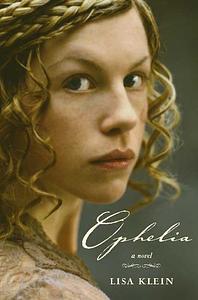Take a photo of a barcode or cover
emotional
mysterious
tense
slow-paced
Plot or Character Driven:
Plot
Strong character development:
Complicated
Loveable characters:
No
Diverse cast of characters:
No
Flaws of characters a main focus:
No
3.5 stars
An easy read and a particularly enjoyable one if the reader is familiar with the plot of Hamlet. It reads as a stand-alone as well though I can’t think it would be as interesting without first knowing the original perspective and characters.
An easy read and a particularly enjoyable one if the reader is familiar with the plot of Hamlet. It reads as a stand-alone as well though I can’t think it would be as interesting without first knowing the original perspective and characters.
Feminism and Hamlet are two concepts I would not have put together. Mostly because Hamlet is a raging misogynist! But this novel shades this topic and complicates it. This novel was fun and interesting! I enjoyed the YA take on Hamlet's Ophelia, retcons and all. Giving Ophelia and even Gertrude complex and vibrant personalities made me wish they had more depth in the source material... but what can you do about a play that's hundreds of years old? Well, you can fanfic it! And boy am I here for that!
adventurous
challenging
emotional
hopeful
reflective
medium-paced
Plot or Character Driven:
Character
Strong character development:
Yes
Loveable characters:
Yes
Diverse cast of characters:
No
Flaws of characters a main focus:
Yes
emotional
medium-paced
emotional
hopeful
inspiring
reflective
sad
slow-paced
Plot or Character Driven:
A mix
Strong character development:
Yes
Loveable characters:
Yes
Diverse cast of characters:
No
Flaws of characters a main focus:
Yes
This was not as good as I wanted it to be. The parts that took place at the same time as Shakespeare's play where well enough, but everything after seemed a little forced and too long-winded.
relaxing
slow-paced
Plot or Character Driven:
Character
Strong character development:
No
Loveable characters:
Complicated
Diverse cast of characters:
Complicated
Flaws of characters a main focus:
Yes
Shakespeare’s tragedy, Hamlet, is practically required reading for every English student. But how much is really known about Ophelia, Hamlet’s “girl,” who goes mad and commits suicide in the original play?
Lisa Klein offers us a different perspective on the undeveloped Shakespearean character. Ophelia is a strong-willed and beautiful young woman living in the often treacherous world of court intrigue. For the most part shunned and used by her father and brother, the once tomboyish and willful Ophelia grows into a lady with wit and passion under the wings of court women such as Queen Gertrude. Yet she sometimes feels separate from the rest of the ladies when they speak of things such as love and marriage.
That is, of course, until she crosses paths with Prince Hamlet. Their attraction for one another is undeniable, and Ophelia soon finds herself spiraling downwards into love. But when, after the suspicious death of his father the king, Hamlet’s passion for Ophelia turns into a dreadful passion for revenge, Ophelia must carve out her own path, with or without her love, if she wants to live.
It is refreshing to have one of Shakespeare’s usually passive female characters retold as a strong personality. Ophelia is very much a modern woman stuck in the early seventeenth century; you can find hearty doses of feminism and religious zeal in many passages throughout. Supporting characters, however, are incompletely sketched, and I never felt any real connection with Ophelia and Hamlet’s love for one another.
About half of the book focuses on what actually occurs in the play; the rest is about Ophelia’s attempt to survive away from Elsinore. Because she ends up at a convent, the second half of the book is very much focused on religion and finding peace with oneself, so much so that at times it can begin to sound preachy. Likewise, Ophelia seemed to approach the reliving of her past at arm’s length, and that, I think, unfortunately detracted from the story’s intimacy and appeal.
Overall, however, Ophelia is an interesting way to reapproach a familiar piece of literature. If you’re looking for something pro-feminism with period language that sounds genuine, pick this one up.
Lisa Klein offers us a different perspective on the undeveloped Shakespearean character. Ophelia is a strong-willed and beautiful young woman living in the often treacherous world of court intrigue. For the most part shunned and used by her father and brother, the once tomboyish and willful Ophelia grows into a lady with wit and passion under the wings of court women such as Queen Gertrude. Yet she sometimes feels separate from the rest of the ladies when they speak of things such as love and marriage.
That is, of course, until she crosses paths with Prince Hamlet. Their attraction for one another is undeniable, and Ophelia soon finds herself spiraling downwards into love. But when, after the suspicious death of his father the king, Hamlet’s passion for Ophelia turns into a dreadful passion for revenge, Ophelia must carve out her own path, with or without her love, if she wants to live.
It is refreshing to have one of Shakespeare’s usually passive female characters retold as a strong personality. Ophelia is very much a modern woman stuck in the early seventeenth century; you can find hearty doses of feminism and religious zeal in many passages throughout. Supporting characters, however, are incompletely sketched, and I never felt any real connection with Ophelia and Hamlet’s love for one another.
About half of the book focuses on what actually occurs in the play; the rest is about Ophelia’s attempt to survive away from Elsinore. Because she ends up at a convent, the second half of the book is very much focused on religion and finding peace with oneself, so much so that at times it can begin to sound preachy. Likewise, Ophelia seemed to approach the reliving of her past at arm’s length, and that, I think, unfortunately detracted from the story’s intimacy and appeal.
Overall, however, Ophelia is an interesting way to reapproach a familiar piece of literature. If you’re looking for something pro-feminism with period language that sounds genuine, pick this one up.
Oh boy, this book. I checked it out from my library thinking "oh boy, Hamlet but from Ophelia's point of view! I love Ophelia! This is perfect!" Oh how wrong I was.
Ophelia in [b:Hamlet|1420|Hamlet|William Shakespeare|http://d202m5krfqbpi5.cloudfront.net/books/1351051208s/1420.jpg|1885548] is a fragile, docile, eager to please creature. In this book, she's very different. Originally, I loved the way that she was characterized by Klein, however, as I read on I was hardly able to handle how spiteful and how crafty Ophelia was. I also despised the ending. Ophelia's suicide was tragic and, in my personal opinion, very romantic. This ending... I refuse to deal.
Ophelia in [b:Hamlet|1420|Hamlet|William Shakespeare|http://d202m5krfqbpi5.cloudfront.net/books/1351051208s/1420.jpg|1885548] is a fragile, docile, eager to please creature. In this book, she's very different. Originally, I loved the way that she was characterized by Klein, however, as I read on I was hardly able to handle how spiteful and how crafty Ophelia was. I also despised the ending. Ophelia's suicide was tragic and, in my personal opinion, very romantic. This ending... I refuse to deal.






